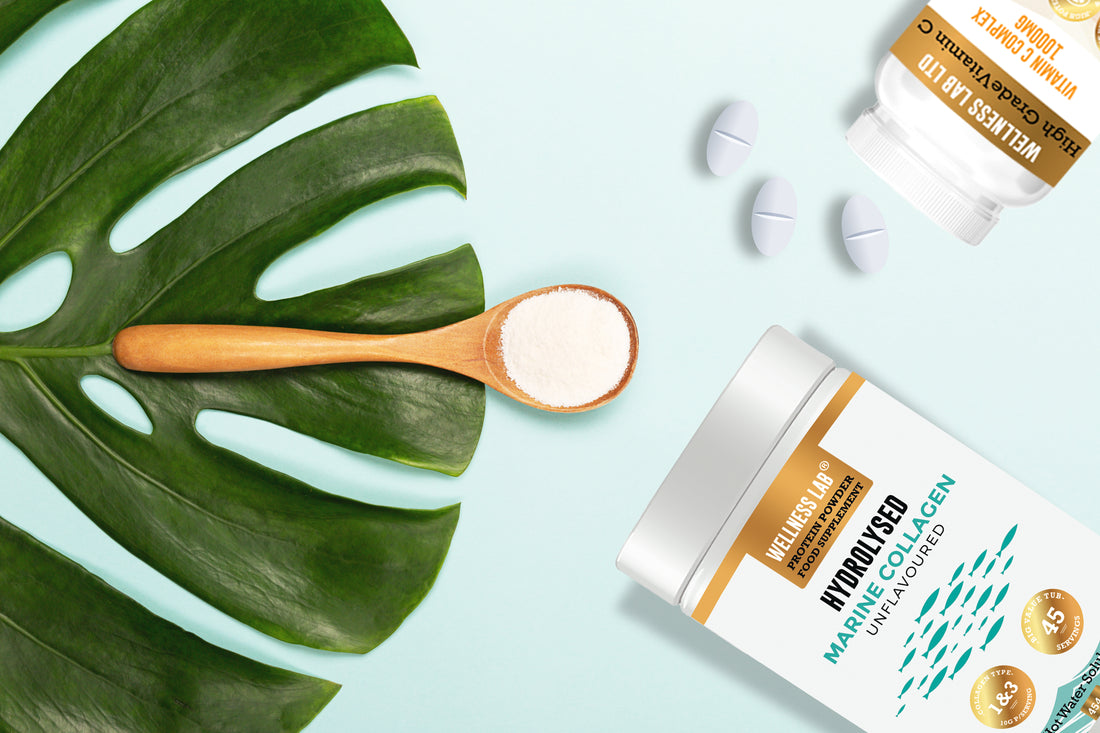
Different types of Collagen
Share
Marine Collagen and Bovine Collagen
There are primarily two types of collagen, bovine collagen which derives from grass fed kettle and marine collagen which derives from fish skins.
Marine collagen or fish collagen is best suited for skin, nails and hair. Marine collagen is extracted from the meat and / or skins of the fish. It is primarily collagen Type I and Type III. These are especially beneficial in supporting skin health, strong hair and nail growth.
Bovine collagen is a naturally occurring protein present in the connective tissue, bones, cartilage, and hides of cows. Most of the collagen supplements are derived from cowhides. Bovine collagen is also beneficial for hair, skin and nails as it also contains Type I and Type III collagen, however is primarily beneficial for joint pain.
Forms of Collagen Supplements: Gelatin and Hydrolysed
There are two main forms of collagen supplements: gelatin and hydrolysed. Gelatin is simply the cooked form of collagen and is one of the most convenient ways to ingest the vital amino acids in collagen. Hydrolysed collagen is obtained by processing gelatin more intensively to break up the proteins into smaller bits.
Hydrolysed collagen easily dissolves in hot or cold liquids, and hence can be added to morning coffee, smoothie, or oatmeal. These small units of protein are also easy to digest and absorb, and deliver the maximum amount of amino acids to our body.
Why do we need Collagen supplement?
As we age, each year we produce 1% less collagen. Our collagen consumption from natural sources has also been declining over time due to our changing dietary habits. Due to the deterioration of the collagen’s elasticity our skin begins to sag in places and causes wrinkles as we age.
How is Collagen made?
Collagen supplements are made from collagen-rich animal tissues. Such tissues are present in the skin and bones of cattle and fish scales and skin, which are mostly discarded during meat processing. The proteins are denatured to form gelatin. It is broken down into smaller fragments and then combined into products in the form of powders, gummies, capsules and protein bars.

